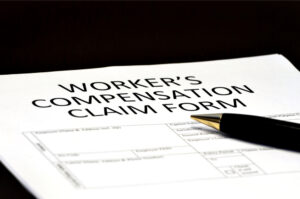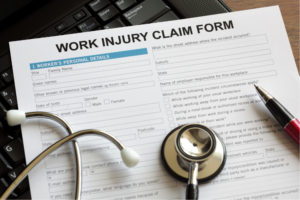 Workers’ compensation ensures employees who are injured on the job are taken care of and don’t have to pay out of pocket for their medical bills. If you were harmed during work, you are owed four types of workers’ compensation benefits depending on your state post-accident. These can include salary benefits, vocational rehab, and medical coverage.
Workers’ compensation ensures employees who are injured on the job are taken care of and don’t have to pay out of pocket for their medical bills. If you were harmed during work, you are owed four types of workers’ compensation benefits depending on your state post-accident. These can include salary benefits, vocational rehab, and medical coverage.
Top 4 Types of Workers’ Compensation Benefits
Some of the workers’ compensation benefits you may be entitled to include the following:
1. Temporary Total Disability
If your doctor says you have to practice certain restrictions at work or gives restrictions that your employer cannot ignore, you are eligible for temporary total disability (TTD) benefits. The payments are two-thirds of the gross average weekly salary you earn over the last 52 weeks before the day of your injury.
2. Temporary Partial Disability
Say you can return to work after your workplace accident, but your injuries force you to work in a lower capacity. In this case, you may have your hours reduced, take on achievable or less-demanding roles or even earn a lower salary. In this case, you are eligible for temporary partial disability (TPD) benefits.
These benefits are two-thirds of the difference between your original and existing (post-accident) average weekly income. The amount cannot exceed $450/week, and it is usually paid for 350 weeks starting from the day you were injured.
3. Permanent Partial Disability Benefits
If you get a permanent disability because of a workplace accident but do not get the above benefits, you may be eligible for permanent partial disability (PPD) benefits. Employers in Illinois have to pay these benefits to workers who suffered from physical impairment, amputation, or disfigurement caused by a workplace accident.
It is usually paid to workers who have reached maximum medical improvement. These benefits are calculated as per the degree of disfigurements such as burns, cuts, abrasions, skin grafts, loss of skin, etc. You and your employer have to establish the number of weeks for benefits, and if you cannot agree, an IWCC arbitrator can. The maximum number of weeks you can get is 162. The established duration is multiplied by 60% of your weekly wages to determine the total amount.
4. Death Benefits
If a worker dies because of a workplace accident or from injuries/illnesses sustained from workplace practices, their dependents may qualify for death benefits. These are income replacement benefits that include funeral and burial expenses.
Important note – A workers’ compensation lawyer in Waukegan will tell you that pain and suffering damages are usually one to three times the cost of your medical bills and lost wages.
Contact Robert Edens for a Consultation Regarding Workers’ Compensation Benefits
Getting appropriate workers’ compensation can be a challenge. The process is quite complicated, and your claim can be denied for several reasons unless you hire an experienced workers’ compensation lawyer in Waukegan from The Law Offices of Robert T. Edens. We have been fighting for the rights of employees like you in Illinois for decades and know what it takes to ensure you get the compensation you deserve. Get in touch with us for a consultation today!

 Your employer’s insurance company typically offers
Your employer’s insurance company typically offers  In Illinois,
In Illinois,  Illinois’ workers’ compensation law is based on a
Illinois’ workers’ compensation law is based on a 
 Many of us will skip the doctor’s visit after an accident, especially if the injury seems negligible. Seeing a doctor is important from a healthcare and legal standpoint. What appears a simple headache may exacerbate into a traumatic brain injury, or a cut may get infected if you don’t seek immediate healthcare treatment. Besides, your healthcare providers’ medical records can serve as valuable evidence when it’s time to file your personal injury claim. If you’re wondering what to do after an injury, or more specifically, what to discuss with your doctor, this guide is for you.
Many of us will skip the doctor’s visit after an accident, especially if the injury seems negligible. Seeing a doctor is important from a healthcare and legal standpoint. What appears a simple headache may exacerbate into a traumatic brain injury, or a cut may get infected if you don’t seek immediate healthcare treatment. Besides, your healthcare providers’ medical records can serve as valuable evidence when it’s time to file your personal injury claim. If you’re wondering what to do after an injury, or more specifically, what to discuss with your doctor, this guide is for you. The COVID-19 pandemic has forced more employees in their homes due to quarantine than businesses can handle. While granting worker’s compensation in these unprecedented times is tricky, professionals that deserve to be compensated are frontline and healthcare workers who are on the front lines trying to keep the pandemic at bay.
The COVID-19 pandemic has forced more employees in their homes due to quarantine than businesses can handle. While granting worker’s compensation in these unprecedented times is tricky, professionals that deserve to be compensated are frontline and healthcare workers who are on the front lines trying to keep the pandemic at bay.  A job-related injury can result in loss of limbs, senses, strength, and mobility. You cannot resume your duties until you fully heal. However, if your boss refuses to compensate, according to the
A job-related injury can result in loss of limbs, senses, strength, and mobility. You cannot resume your duties until you fully heal. However, if your boss refuses to compensate, according to the  A work-related injury can prevent you from earning an income to support yourself, your family and can deplete your savings. This is why Illinois has strict worker compensation
A work-related injury can prevent you from earning an income to support yourself, your family and can deplete your savings. This is why Illinois has strict worker compensation  Workers’ Compensation Act is a state-mandated benefit system, which incorporates compensating employees by paying for any medical cost associated with their job-related injuries and illnesses. Workers’ compensation is for almost every employee in Illinois – it usually begins from the minute you start working.
Workers’ Compensation Act is a state-mandated benefit system, which incorporates compensating employees by paying for any medical cost associated with their job-related injuries and illnesses. Workers’ compensation is for almost every employee in Illinois – it usually begins from the minute you start working. Workplace injuries are a common occurrence in the United States. A report
Workplace injuries are a common occurrence in the United States. A report 